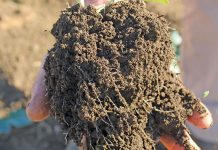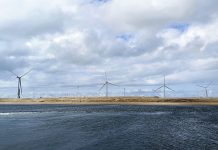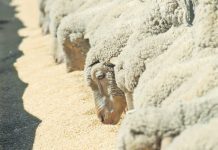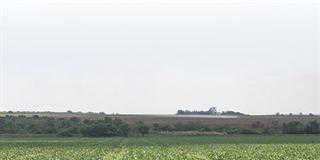Cape small-grain farmers were pleasantly surprised at the recent Agri Mega Week in Bredasdorp, where a new speciality canola variety called monola was introduced. Dr Nick Kotzé, Agricol’s research and development director at Brackenfell, Western Cape, explains that “mono” in the name monola refers to the monounsaturated fats that dominate the oil.
Monola was developed in Australia over 10 years ago as a spin-off of mainstream canola. Farmers will have higher returns with monola than with conventional canola because of the premium paid for the good oil it produces. And it yields as well as other canola varieties.
Unsaturated fats (trans fatty acids) increase the risk of coronary heart disease by raising levels of “bad” low-density lipoprotein cholesterol while lowering levels of “good” high-density lipoprotein cholesterol. The oil produced from monola, on the other hand, is low in cholesterol, and as consumer awareness about the dangers of unsaturated fats grows, the demand for a healthier alternative like monola is likely to increase as well.
The health benefitsMonola oil contains about 70% oleic acid, a monounsaturated omega-9 fatty acid that increases an oil’s stability, and about 3% alpha-linolenic acid, a polyunsaturated omega-3 fatty acid. This means monola oil is highly stable. Generally, the more stable the oil, the longer it can be used before it starts to break down and “taint” food during cooking, explains Dr Kotzé.
Monola oil is an ideal replacement for other vegetable oils, which are currently under heavy scrutiny for the unhealthy trans fats they contain as result of being partially hydrogenated to increase stability. It’s also an alternative to oils high in saturated fat, such as palm oil and tallow.
“The timing for the development of monola just couldn’t be better, as a growing number of countries are seriously looking into ways to reduce the use of trans fats in the food industry,” says Dr Kotzé.“The World Health Organisation has already sent out recommendations encouraging governments to phase out partially hydrogenated oils.“So, with monola, the canola industry shows great foresight in being prepared once unhealthy fats and oils become outlawed, as they must.” Dr Kotzé and his colleagues are in negotiations with local leaders in the food industry to win them over to monola, and he says they’re excited about the oil’s possibilities. This will be no mere niche crop, he adds. Monola, he believes, can make up as much as 50% of the total local canola crop in the next five to seven years if trends progress as projected.
Growing monola
Two years of local trials, supported by many more in Australia, show that monola offers the same agronomic advantages as mainstream canola, says Dr Kotzé. Trials at Langgewens experimental farm near Moorreesburg show that monola yields were comparable to those of canola and even better at times. “You can treat monola the same as canola and receive a premium because of its good oil. It’s not like a new crop that may be risky to grow. And monola’s yield and oil content are as good as mainstream canola,” says Dr Kotzé. The premium paid for monola will vary. But at current prices, it’s expected to be between R200/t to R300/t more than for canola.
Dr Kotzé expects the grading system for canola to be adjusted to include testing for fatty acids, as well as to prevent mixing.It’s anticipated that about 1 400ha will be planted to the new crop next year. At first, only the higher-potential land will be targeted. The cultivars available will be Monola 130CC and Monola 76TT (a triazine-tolerant cultivar). Many more cultivars have been tested in Australia and will find their way to South Africa soon. There’s no doubt about it – farmers thinking of giving monola a try will add to their bottom-line, and pave the way to a healthier South Africa. Contact Dr Nick Kotzé on 083 461 6670, or e-mail at [email protected]. |fw












